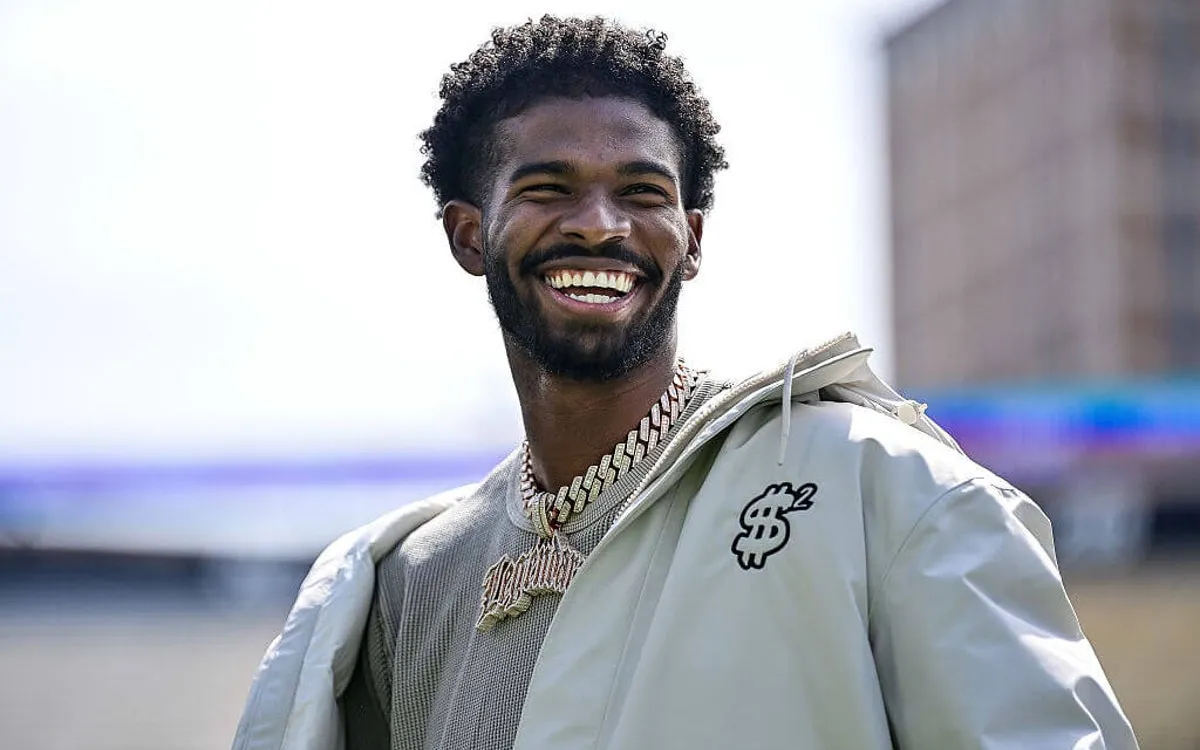
With all 257 picks officially made, the excitement surrounding the 2025 NFL Draft has left every general manager and head coach likely smiling at the podium, confidently stating, “We got our guys.” While time will reveal the true impact of these selections, the weekend in Green Bay was particularly eventful. This article delves into the notable winners and losers from this year’s draft.
The Cleveland Browns made a bold decision during the draft, particularly in their approach to the quarterback position. Initially, I was skeptical of their decision to pass on Travis Hunter, a player with the potential to be a standout talent in the league. If Hunter indeed becomes the star the Jacksonville Jaguars anticipate, this trade may not age well for the Browns. Aside from Myles Garrett, the outlook for the Browns in 2025 appears bleak, particularly within their quarterback room, which is now the most perplexing in the NFL.
Currently, the Browns are navigating a quarterback situation that includes an injured Deshaun Watson, a 40-year-old Joe Flacco, Kenny Pickett, Dillon Gabriel, and Shedeur Sanders. By selecting Sanders at No. 144, the Browns provided him a chance to develop under less pressure compared to earlier first-round selections. This choice allows Sanders to compete for a roster spot without the immediate expectation of being the starter. The real challenge for Sanders will be surpassing Gabriel on the depth chart.
While Watson's future remains uncertain, the Browns seem to be strategically postponing their quarterback search until 2026, a year projected to have a more talented draft class, potentially featuring Arch Manning. With an additional first-round pick acquired from the Jaguars, the Browns are positioning themselves for future success. Their 2025 draft class, including selections like Mason Graham and Carson Schwesinger, shows promise for building a competitive roster.
The Bears’ Commitment to Caleb WilliamsThe Chicago Bears are actively crafting a supportive environment for their young quarterback, Caleb Williams. General manager Ryan Poles and head coach Ben Johnson are not merely banking on a Year 2 leap from Williams; instead, they are strategically enhancing the roster around him. This proactive approach contrasts sharply with many organizations that have historically failed to nurture their quarterbacks.
Under Johnson’s guidance, the Bears have shifted their focus from a defense-first mentality to a more balanced offensive strategy. In free agency, they focused on bolstering the offensive line, acquiring Joe Thuney, Jonah Jackson, and Drew Dalman. These moves aim to provide Williams with a robust foundation for success. Additionally, the Bears made a significant draft move by selecting Colston Loveland, a dynamic tight end from Michigan, followed by adding wide receiver Luther Burden III in the second round, both designed to facilitate Williams’ growth as a quarterback.
The Chargers' Offensive StrategyThe Los Angeles Chargers, under the direction of coach Jim Harbaugh, demonstrated a clear understanding of their identity during the draft. Despite criticism for selecting offensive tackle Joe Alt last year, their commitment to strengthening their offensive line has paid off. This year, the Chargers focused on improving their offensive skill positions by drafting three top-tier players.
By selecting Omarion Hampton, a talented running back from North Carolina, and Tre Harris, a promising wide receiver from Mississippi, they have significantly enhanced their offensive options for quarterback Justin Herbert. This strategic approach ensures Herbert will have the necessary support to elevate the Chargers’ offensive performance in the upcoming season.
The Rams' Draft IngenuityThe Los Angeles Rams have shown impressive draft acumen, especially after trading out of the first round this year. General manager Les Snead and coach Sean McVay executed a savvy trade with the Atlanta Falcons, acquiring a first-round pick for 2026, which could be a high-value selection. This move aligns with the Rams’ long-term strategy.
In this draft, the Rams selected Terrance Ferguson, a versatile tight end from Oregon, who can complement their existing offensive arsenal. With veteran quarterback Matthew Stafford aging, the additional first-round pick positions the Rams for future quarterback prospects in what is expected to be a deeper draft class next spring.
Despite showcasing significant talent, Shedeur Sanders experienced a surprising fall in the draft to the fifth round. This decline was not due to his on-field performance but rather the intangibles that teams scrutinized during the draft process. With quarterbacks often receiving heightened attention, Sanders’ decision to skip critical events like the Senior Bowl and combine workouts may have influenced team perceptions.
Character concerns and interviews reportedly did not reflect well on Sanders, contributing to his unexpected drop. Furthermore, comments made by his father, Deion Sanders, regarding potential draft decisions could have cast a shadow over his prospects. Ultimately, teams often shy away from selecting high-profile players for secondary roles if they do not meet specific fit criteria.
The Steelers' Quarterback DilemmaThe Pittsburgh Steelers find themselves in a precarious situation regarding the quarterback position as their draft selection of Will Howard in the sixth round does not address their pressing needs. With Mason Rudolph, Howard, and Skylar Thompson as their current options, the Steelers may be forced to rely on Aaron Rodgers to fill the void.
While Rodgers has demonstrated he can elevate a team, his recent performance has raised questions about his ability to lead effectively at age 40. The Steelers, known for their strong defense, could benefit from Rodgers’ experience, but relying on him as the primary solution may not be prudent. With the competitive landscape of their division, the Steelers must navigate their quarterback uncertainty carefully.
As we analyze the aftermath of the 2025 NFL Draft, it’s clear that while some teams have positioned themselves for future success, others face significant challenges ahead. Time will tell how these decisions play out in the coming season and beyond.